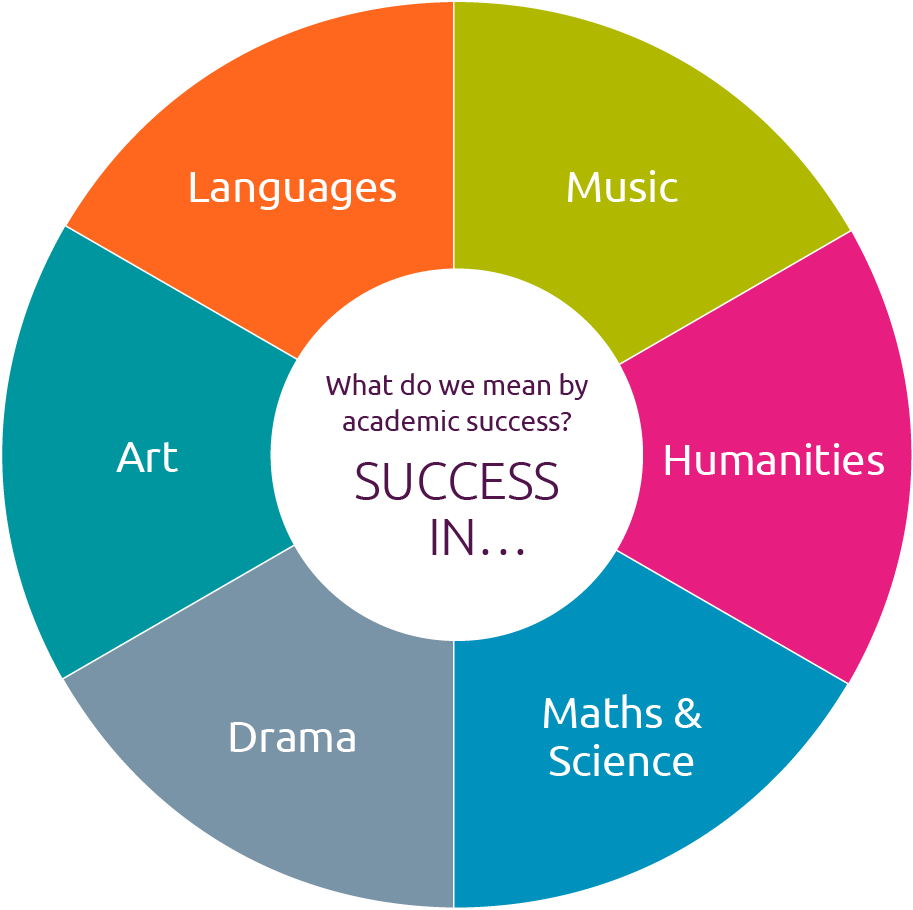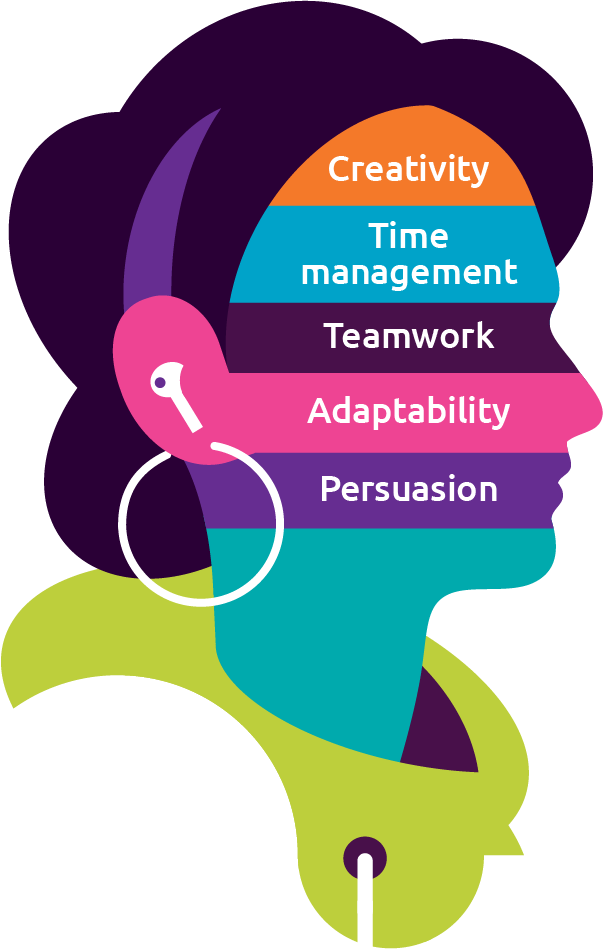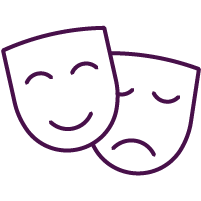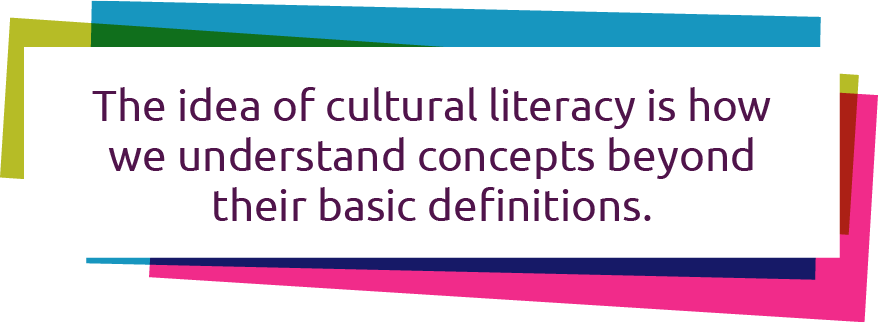Supporting your child’s school to provide good quality arts enrichment allows your child to thrive.
What does arts enrichment learning mean and why is it so important for your child’s education, wellbeing, and future?
Your school might call these activities co-curricular, extra-curricular or indeed enrichment. Don’t worry, we’re all talking about the same thing. Arts activities that build on the curriculum and take place out of lesson time like clubs, rehearsals, performances and preparation for exhibitions.
In recent years, you will have heard all about the importance of STEM subjects (Science, Technology, Engineering and Mathematics) and developing children and young people’s digital skills as a priority. However, there have been growing concerns that young people entering employment might lack the necessary creative skills to navigate the rapidly changing work landscape and not have vital transferable skills needed to tackle new challenges.
We’ve outlined below the key things you need to understand about arts enrichment activities and how you can support your child to get involved.


Did you know that participation in the arts can help your child succeed?




What does this mean for university?
Many higher-level graded exams in music and drama qualify for UCAS Tariff points.5


Student, Old Palace of John Whitgift School
Student, Wisbech Grammar School
Student, Bucks Music Trust



Sara Davey, Head of Mounts Bay Academy
Lizi, drama teacher, Leeds
Helen Holford, Governor, The Valley School

Taking part in arts activities has a notable impact on young people with additional needs and learning challenges.
There is evidence to support the positive impact of arts on students who have additional needs including:

Further reading:
Ayşe Çevirgen, Burcu Aktaş, and Mehtap Kot. ‘The Influence Of Visual Arts Education On Children With ASD’
Paula Manning. ‘Arts & Cultural Provision for Special Educational Needs Learners in London’.
Beng Huat, and Dimitra Kokotsaki. ‘Impact of Arts Education on the Cognitive and Non-Cognitive Outcomes of School-Aged Children’
Sjöqvist, Anna, Kerstin Göransson, Karin Bengtsson, and Susanne Hansson. ‘The Arts: A Precious Part of Special Education? How Principals Value and Organise Arts Education in Compulsory School for Pupils with Intellectual Disability in Sweden’.

After a period of disruption connected to the pandemic, there has been lots of conflicting advice for parents and carers on how best to support children’s learning.
The good news is that evidence shows arts enrichment not only positively impacts academic achievement, but provides vital mental health benefits both now and in the future.

Art as therapy has been around for a long time. Music, art, drama and movement have always been ways for us to explore and process difficult experiences and feelings. As children process the experience of remote learning and the wider impacts of the pandemic, arts enrichment offers an opportunity to ease the process and support overall wellbeing.
There are huge wellbeing benefits to:
Making arts activities a core part of your child’s learning gives space for mindfulness and all the benefits both in the moment and longer-term.
Nordic countries believe strongly in the link between participation in the arts and a longer, healthier life, so much so they’ve included access within their Children’s Constitutional Rights.
Career path
Participation in arts enrichment increases the chances of young people continuing to higher education. This means more potential for job satisfaction and security as your child moves into the world of work.6
The LinkedIn Employer Survey 2019 identified the following soft skills that companies need but have a hard time finding:

Creativity

Persuasion

Time Management

Collaboration

Adaptability

Time Management
“The discipline and appreciation of music (and enhanced dexterity!) preparing for this exam has given me helped improve on the other instruments I play. It also taught me how to cope with juggling the amount of work I have in the runup to A-Levels.”
Student, Tempo Music Academy
Adaptability
‘In live performance, anything can happen. Anything does happen. And students learning to cope with that and to carry on is a valuable skill.’
Michelle, parent
Teamwork
“Students are encouraged to work together in order to achieve their joint goals. A lot of subjects don’t require students to do this or get a grade based on their combined actions within a unit: graded drama exams require collaboration, good listening, and compromise – really adult skills, which should be celebrated.”
Chris, Head of Drama
Persuasion
“I gained confidence and communication skills which will help me with everything I do in future life.”
Student, Alderbrook School
Creativity
“My Speech and Drama exams have improved my creativity, knowledge and ability in both my performance and written work”
Student, Big Red Curtain


What does this have to do with arts enrichment?
The study of music, art and drama, helps students to gain cultural knowledge and literacy which they can apply in all other aspects of their life.
Studying the arts helps students to grow into rounded individuals by providing them with an understanding of society and culture, and their role within it.
“For a lot of children, their first introduction to Shakespeare is sitting in an English classroom reading it – that’s not how Shakespeare is meant to be accessed. What teenager wants to sit down and read this text from a book?
But taking a group to see a production of ‘Othello’ and watch it live was amazing. All of a sudden things made sense to them.”
Adam, actor and drama teacher, Liverpool

Trinity College London is a leading international exam board and independent education charity that has been providing assessments around the world since 1877. Trinity specialises in the assessment of communicative and performance skills covering music, drama, combined arts and English language.
www.trinitycollege.com
(1) Cultural Learning Alliance: Evidence (2) Cultural Learning Alliance: Evidence (3) Cultural Learning Alliance: Evidence (4) ‘The relationship between taking a formal music qualification and overall attainment at Key Stage 4. Cambridge Assessment Research Report’. (5) Calculate your UCAS tariff points. (6) Matthys and Perlzweig (2012). 'Cultural Capital, Identity, and Social Mobility: The Life Course of Working-Class University Graduates'.